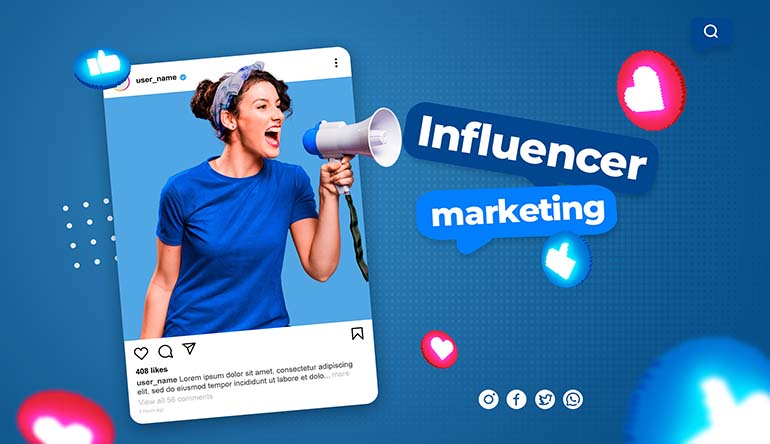In an era where consumers are bombarded with advertisements and marketing messages, authenticity has become a vital currency in influencer marketing. As brands strive to connect with their target audience, collaborating with influencers who genuinely resonate with their values and mission can significantly impact engagement, trust, and ultimately, sales. Here’s why authenticity is crucial in influencer marketing and how brands can harness it effectively.

Table of Contents
Toggle1. Building Trust with the Audience
Authenticity fosters trust, which is the foundation of any successful marketing strategy. When influencers share their genuine experiences and opinions about a product or brand, their audience is more likely to believe and relate to their message. According to a survey by Stackla, 79% of consumers say user-generated content (UGC) highly impacts their purchasing decisions. When followers see influencers promoting products they truly use and love, it builds confidence and encourages them to engage with the brand.
2. Enhancing Brand Credibility
Partnering with influencers who align with your brand values enhances your credibility. Consumers are savvy; they can quickly spot inauthentic partnerships that come off as purely transactional. When influencers promote brands they genuinely believe in, it signals to their followers that the brand is trustworthy. This credibility can lead to increased brand awareness and loyalty, as customers feel more connected to a brand that their favorite influencers endorse.
3. Improving Engagement Rates
Authenticity can significantly impact engagement rates. Followers are more likely to interact with content that feels real and relatable. Influencers who share personal stories or experiences related to the brand often see higher engagement than those who present a polished and overly promotional image. Authentic content resonates emotionally with audiences, leading to increased likes, shares, and comments, which further amplifies the brand’s message.
4. Fostering Long-Term Relationships
Building long-term relationships with influencers can be more beneficial than one-off campaigns. When brands collaborate with influencers who share their values and ethos, it allows for more authentic storytelling over time. This continuous relationship fosters a deeper connection between the influencer and their audience, leading to sustained brand loyalty and ongoing engagement. Long-term partnerships can result in more meaningful content that resonates with followers and reinforces the brand’s messaging.
5. Driving Authentic User-Generated Content
When influencers promote products genuinely, it often encourages their followers to create and share their own content. This user-generated content (UGC) is a powerful tool for brands, as it showcases real customers using and enjoying the product. UGC not only serves as authentic testimonials but also creates a sense of community around the brand. Brands can leverage this content in their marketing efforts, showcasing authentic experiences that resonate with potential customers.
6. Aligning with Consumer Values
Today’s consumers are more conscious of their values and the brands they support. They seek authenticity not just in influencers but in the brands themselves. By collaborating with influencers who genuinely reflect your brand’s values and mission, you can connect with consumers who prioritize authenticity. This alignment creates a stronger emotional connection and encourages customers to support your brand over competitors who may not prioritize genuine partnerships.
7. Avoiding Backlash and Negativity
Inauthentic influencer partnerships can lead to backlash and negative publicity. When influencers promote products they don’t use or believe in, it can damage their credibility and, by extension, the brand’s reputation. Consumers are quick to call out insincerity, especially on social media platforms. Brands must be vigilant in choosing influencers who genuinely align with their image to avoid potential controversies that could harm their reputation.
Tips for Ensuring Authenticity in Influencer Marketing
- Choose the Right Influencers: Look for influencers whose values align with your brand. Their audience should mirror your target market, ensuring a more authentic connection.
- Encourage Creative Freedom: Allow influencers to create content in their style. This ensures that the messaging feels genuine and resonates more with their audience.
- Foster Relationships: Build long-term relationships with influencers rather than relying on one-off promotions. This fosters authenticity and deeper connections with their followers.
- Engage with User-Generated Content: Encourage influencers to interact with their followers and share UGC. This not only builds community but also enhances the authenticity of the brand message.
- Monitor Performance and Feedback: Continuously assess the performance of influencer campaigns and gather feedback. Understanding audience perceptions can help refine your approach to authenticity in future campaigns.
Conclusion
In influencer marketing, authenticity is not just a buzzword; it’s a vital component for building trust, enhancing brand credibility, and fostering genuine connections with consumers. Brands that prioritize authenticity in their influencer partnerships are more likely to see higher engagement, improved loyalty, and ultimately, greater success in their marketing efforts. As consumers become increasingly discerning, embracing authenticity in influencer marketing will set brands apart in a crowded marketplace and pave the way for lasting relationships with their audience.


No responses yet